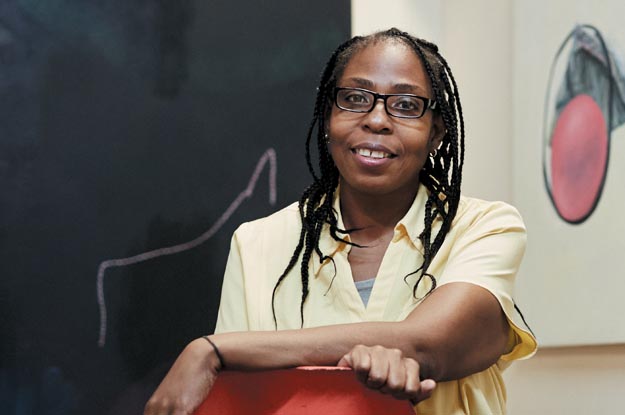While many were surprised when tens of thousands of unaccompanied Central American children arrived at the U.S. southern border seeking asylum last year, it had a sadly familiar resonance for Gregoria Flores.
“I know what it’s like to apply for asylum here when you have no one supporting you,” said Flores, 47, who arrived alone in the U.S. in 2006 after fleeing assassination attempts due to her work advocating for Indigenous rights in her native Honduras. Flores, now a resident of the Bronx, New York, identifies as Garifuna—of Indigenous Carib, Arawak and West African descent—and recognized all too well the forces driving people out of Central America and the dearth of resources available once they reach the United States.
Seeing the significant, unmet needs of Hondurans young and old arriving in New York City, Flores sprang into action, drawing on her experience as a community activist in Honduras and the personal networks she had developed after nearly a decade in the Bronx. She successfully crafted and executed a plan to help recent arrivals navigate their new environment.
The first step was to identify legal services that could help the new arrivals. She began contacting pastors and priests from various Christian denominations in the Bronx and was able to leverage her relationships with local clergy—many of whom have remained deeply involved as members of her decision-making team—to host legal clinics in their churches. Because of these relationships, Flores was able to mobilize dozens of volunteers from various congregations and build a team. They have held seven Gregoria Flores assists Honduran children with donated clothes at St. Luke Church in the Bronx legal clinics, which have handled approximately 500 cases since last summer, with nearly 30 volunteers.
Flores was able to place 70 percent of the cases with pro bono attorneys, but her legal clinics were just the beginning. Since then, “some of the adults we worked with have obtained work permits and others’ cases have moved forward, even though there is a long delay in the immigration system,” she said.
As a result of her work, Flores was able to cofound a Bronx-based agency called Garifuna Community Service (GCS), which helps recently arrived immigrants secure food, health referrals and school enrollment (among other needs) through nongovernmental organizations. GCS also refers families and children struggling to integrate into their new surroundings to counseling provided by the clergy with whom she partners. Though it still has no paid staff, GCS works to respond to all of these needs with the hope of bringing services closer to the homes of Garifuna immigrants in the Bronx—where the organizational infrastructure of immigrant communities has historically been weaker than elsewhere in New York City.
Flores recognizes the work is far from finished. Although the number of unaccompanied minors in the U.S. has slowed, immigrants still have little access to the services infrastructure they need. “This is a new segment of the population that doesn’t qualify for most government services, so the process to educate everyone about this issue is long,” she said. Thanks to activists like Flores, however, the process of adjusting to a new life for many is a little less lonely and terrifying.





